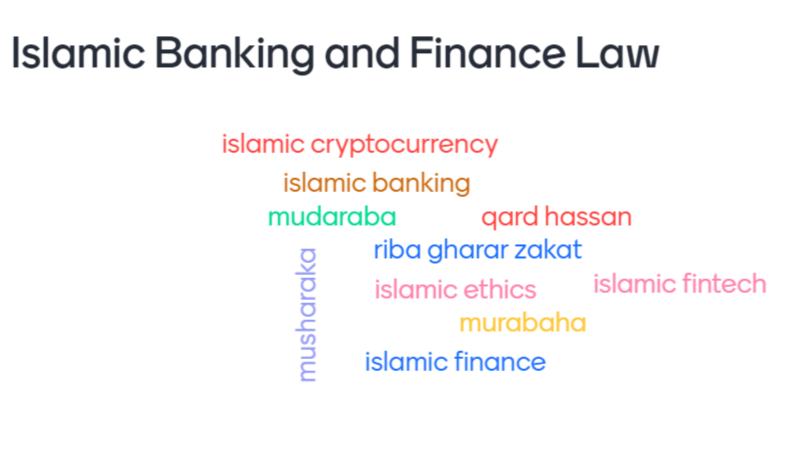By Ruslan Saleev,
4.3.2023
It is time to accept it – cryptocurrencies are here and they are disrupting the financial sector. It is as disruptive as fiat currencies (currencies that are not backed by gold or silver, e.g. US dollar since 1971), credit cards, and options once were.
Since Islamic law is highly dependent on fatwas (legal opinions of Shariah experts), the ultimate fate of cryptocurrencies – whether it is haram, and hence impermissible, or halal, and hence Shariah-compliant – will be determined by such a fatwa.
Grand Mufti of Egypt Shaykh Shawki Allam, the Turkish Government, Fatwa Center of Palestine, and UK-based scholar Shaykh Haitam all think that Bitcoin, one of the most popular cryptocurrencies, is haram[1]. Among the arguments that they operate with are: there is no central authority that monitors the cryptocurrency, it is open to speculation (and hence, there is excessive gharar – uncertainty, hazard), the cryptocurrency not being backed by anything, and even used in illegal activities[2].
Muneer Khan, head of Islamic finance and Middle East practices at Simmons and Simmons, on the other hand, claims that there might be a misunderstanding of the nature of cryptocurrencies by the scholars and Shariah experts due to the lack of knowledge in the area of modern-day finance and technology[3].
Qatar University professors and researchers agree with Khan on that. They criticize the opponents of cryptocurrencies by arguing that, for example, gold, which is Shariah-compliant, does not have a central authority either and that its price is volatile, too[4]. Moreover, just like fiat currencies, which are generally regarded as Shariah-compliant, cryptocurrencies depend on public acceptance and confidence[5].
The third view is somewhat in the middle – the fatwa center of South African Islamic seminary is of a view that cryptocurrencies, such as Bitcoin, fulfill the conditions of maal (property) – the main argument is that it has been accepted through general societal concurrence (urf, customary practice) – and hence it can be traded. Nevertheless, the center claims that in order to be considered a currency, relevant governmental bodies have to approve it first[6].
Not all cryptocurrencies are considered to be haram even by their general opponents. OneGram was the first cryptocurrency that has been certified in compliance with Shariah. Among other reasons, it is accepted by the Shariah experts due to the fact that it is backed up by gold and 2,5% of profits from OneGram transactions go to their charity (thus fulfilling the requirements of zakat, one of the five pillars of Islam)[7].
As can be seen from the arguments presented above, there are many views when it comes to determining whether cryptocurrencies are Shariah-compliant. We can only speculate at this point whether cryptocurrencies are going to gain a wide fatwa recognition – yet, much depends on it, since four of the ten biggest sovereign funds are run by majority-Muslim countries, and large portions of those funds´ investments go into Shariah-compliant assets[8].
[1] Mufti Muhammad Abu-Bakar, “Shariah Analysis of Bitcoin, Cryptocurrency, and Blockchain”, 5 April 2017 < https://islamicbankers.files.wordpress.com/2019/02/2017-shariah-analysis-of-bitcoin-cryptocurrency-blockchain.pdf > accessed on 27 February 2023.
[2] Ibid.
[3] Gerrit De Vynck, “Islam has a rich tradition around finance. Crypto is prompting new questions.” (Washington Post, 8 March 2022) < https://www.washingtonpost.com/technology/2022/03/08/bitcoin-crypto-islam-haram/ > accessed on 28 February 2023.
[4] Andrew Dahdal, Jon Truby, Otabek Ismailov, “The Role and Potential of Blockchain Technology in Islamic Finance” [2022] 33 European Business Law Review 175, 188 < https://esc.qu.edu.qa/static_file/qu/research/Centre%20for%20Law%20and%20Development/publication/EULR_33-02_Dahdal_et_al._Offprint.pdf > accessed on 1 March 2023.
[5] Ibid.
[6] Ziyaad Mahomed, Shamsher Mohamad, “Crypto Mania: The Shariah Verdicts”(Centre for Islamic Asset and Wealth Management, 2017) < https://ikr.inceif.org/bitstream/INCEIF/2889/1/crypto_mania_ziyaad_shamsher.pdf > accessed 1 March 2023.
[7] For more information on OneGram, see < https://onegram.org/ > accessed 1 March 2023.
[8] See supra note (3).
